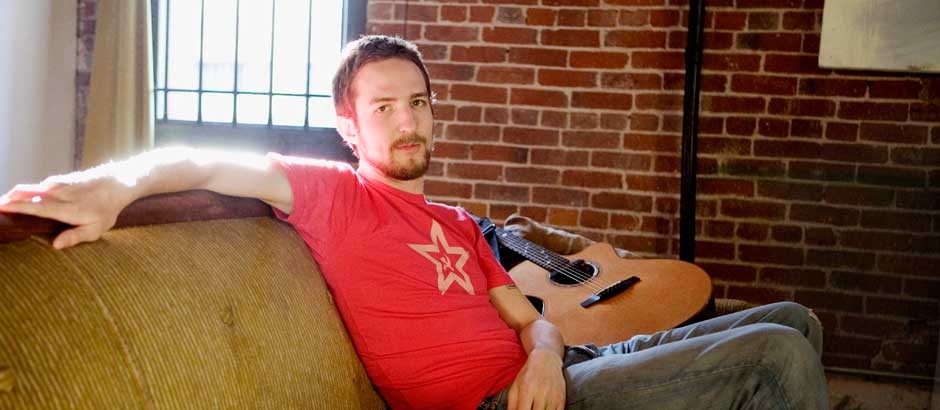While that folk simplicity may have made sense in the sixties, the question of whether it can still remain relevant as an art form in the face of the extremely fractured and disjointed society we live in today is an important question. Are other forms of music more equipped to reflect or deal with the kind of world that Turner’s music is engaging with? “That’s the thing, in terms of my own personal musical taste, it’s kind of like the willfully complicated, obscurantist approach of trying to be slightly post-modern is all very well and it’s fine if that’s what people want to do, that’s what they want to do. For myself it was almost liberating, having immersed myself in that world of trying to intellectualize everything, to actually turn around and go, I’m going to play G, C and D and I’m going to sing a rhyme on top of it. Maybe in simplifying the form, the direction of the message can become a lot more powerful and apparent. That’s not just a political message, any kind of message whether you’re writing about love or death or whatever. I spent a lot of time playing in bands where it was a case of almost one-upmanship, it was kind of like can we be more complicated than our peers? Can be more challenging than the bands around us? Or even can I write a more complicated guitar part than the bass part in this song or whatever it might be. Then to break away from that and go back to the simplicity, it feels good.”
The directness of the message certainly seems to be important to Turner, with the weight of a well-told story coming across as heavier than the layers of guitars and thundering drums. “For me personally, I didn’t grow up listening to any kind of folk or acoustic music, it was metal then punk and then hardcore. Obviously I was aware of the existence of people like Johnny Cash and Bob Dylan and that kind of thing but to actually start listening to that stuff, especially with the Johnny Cash American recordings, that was kind of like a revelation almost. Here was this stuff that was, in a way, heavier than the things I had been listening to, certainly on an emotional level. But it was so simple, it was like, I know how to play that song instantly, I can hear it just by listening to the bloody thing. There’s something quite naked in a way about resolving to play simple music because you can’t hide behind playing in forty different keys at a million miles and hour in thirteen time or whatever, and I find that inspiring.”
The central idea that holds this kind of art up is timelessness, where the artist is operating outside of the over-riding social tastes of their day. Matching this with the ability to deal with current affairs or societal problems is a difficult balance to get right, which probably explains the impossibility of there ever being genuine contender for “this generation’s Bob Dylan”. Turner certainly is not up for the tag. “I feel like this it’s more kind of fashion proof, this kind of music, than some others. Obviously music tastes come and go and there will always be a certain constituency of people who listen to whatever is fashionable at the moment. I guess, that’s just the way of the world. I find it slightly irritating sometimes but I don’t think there’s any point trying to lead a crusade against it, that’s just how human beings are. Beneath all that, I feel there’s more of a non-tidal audience for acoustic music than some others. Mumford and Sons have turned a few heads recently but it’s not the music of Williamsburg in Brooklyn or Shoreditch, and I can’t ever really see it doing that. I certainly think that’s a good thing though, I dread to think that I’d ever be the music of Williamsburg or Shoreditch!”
Frank Turner‘s Irish tour dates:
- 13th September – Kilkenny, Set Theatre
- 14th September – Cork, Cypress Avenue
- 15th September – Galway, Roisin Dubh
- 17th September – Belfast, Stiff Kitten
- 18th September – Dublin, Whelan’s


